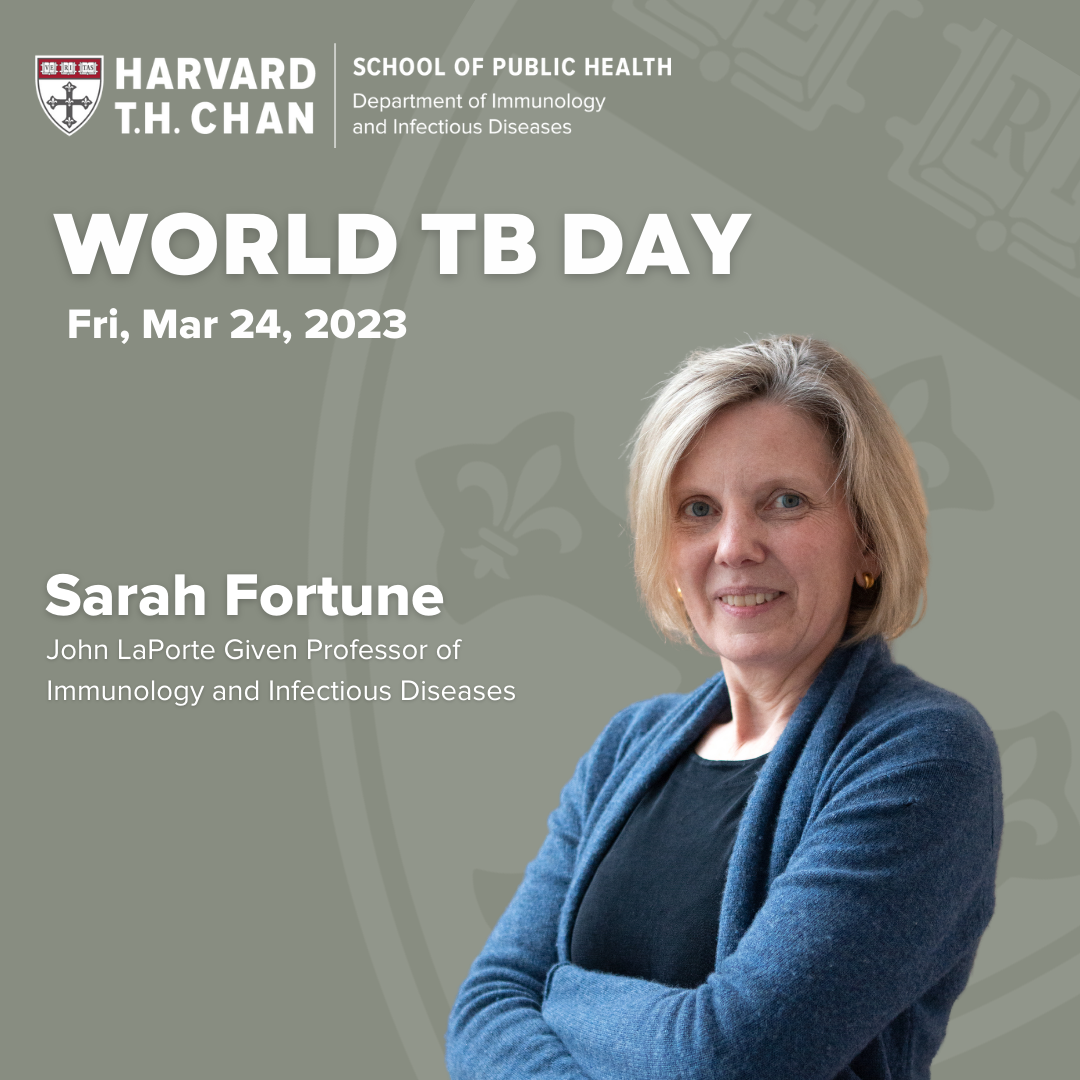Sarah Fortune on what’s next in the fight against tuberculosis

Sarah Fortune, our resident Tuberculosis expert on vaccines was on the panel of Combatting a global killer: What’s next in the fight against tuberculosis.
Here below you can find some extracts from the talk and also the full recording of the discussion.
TB Diagnostic testing
There has been substantive improvement in TB diagnostics over the past 20 years, there’s just no doubt about it. You know when I started TB diagnosis it was all smear microscopy that had been around since 1890 and culture, you know Robert Koch learned how to culture mycobacteria. Those were our diagnostic modalities and now there’s a genexpert that’s looking for the TB DNA and you’re looking for a few drug resistant mutations and actually it has been for some people who have access to it and some health systems totally transformative actually the complexity of course is that a transformative diagnostic is more expensive than no diagnostic. And so a genexpert test cost $10 and if you put that in the context of sort of what you would have for your own care $10 to be diagnosed with TB accurately in an early stage and understand basic drug resistance profiles it is totally self evident that that is of course what you would do. And yet the health systems are struggling to get that sort of resource to people. So yes that is sort of the first Vanguard of TB diagnostics and then you only have to look at covid right sequencers were rolled out around the world and we are sequencing covid everywhere and so that capcity exists in many places in the world which could further increase sophistication of TB drug resistance diagnosis but there has to be a sort of understanding that yes that would cost more money than doing nothing but those people are worth it.
TB Vaccines:
When I talk about the roll out or how we are going to conquer TB, first we have to use the tools we have to the very best of their extent. There is no question, we have tools we should be using them and we are not. Part of the end of investing in drugs and vaccine is to actually make the care much simpler because a burdened Health Care system for a burdened health care system it would be transformative to have a vaccine then all of a sudden things that are not possible now would be possible.
Who do you give the vaccine to?
The more fundamental question is can we actually develop a transformative vaccine because my transformative vaccine which I can cook up right here in my imagination it’s one to give to babies and protects them for life. Whether that’s biologically possible you know that’s what I work on it’s a question we struggle with everyday and so I’m not saying that we know that that’s going to work or honestly that the mRNA platforms are going to be our answer and that we’re going to fix it is naïve. I do think a protective vaccine is in our future but in the meantime we cannot be waiting for that protective vaccine to use the tools we have.
If you think about it, it’s definitely going to cost more than doing nothing, letting people die is definitely the cheapest option but if you think about how hard it was to culture and diagnose drug resistant TB. I mean that was like, you had to have a BL3. The old way of doing things was only cheaper because you know people had gotten —- there’s a lot of human capital actually involved in that and the human capital is cheap or you didn’t do it.
If you want to see the full talk, click on the video below.


